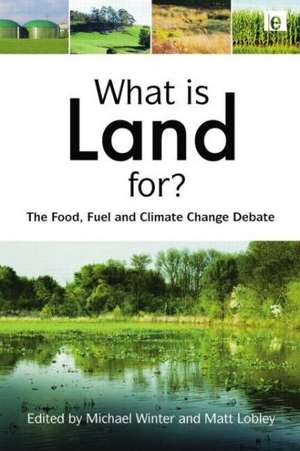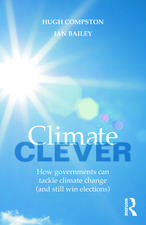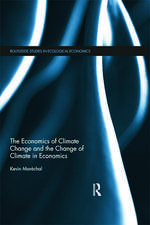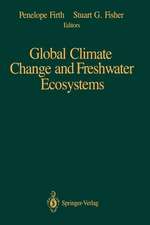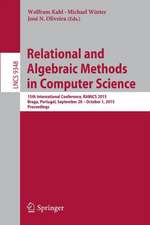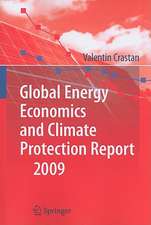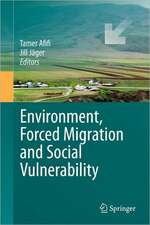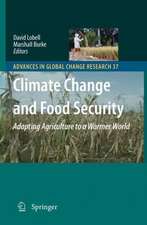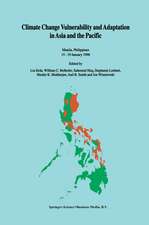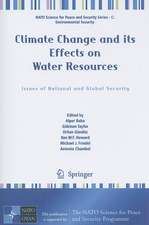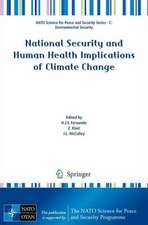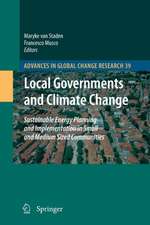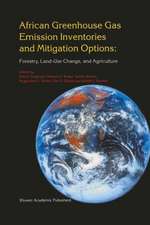What is Land For?: The Food, Fuel and Climate Change Debate
Editat de Michael Winter, Matt Lobleyen Limba Engleză Paperback – 22 mai 2015
Preț: 300.95 lei
Preț vechi: 342.28 lei
-12% Nou
Puncte Express: 451
Preț estimativ în valută:
57.59€ • 60.12$ • 47.66£
57.59€ • 60.12$ • 47.66£
Carte tipărită la comandă
Livrare economică 04-18 aprilie
Preluare comenzi: 021 569.72.76
Specificații
ISBN-13: 9781138881228
ISBN-10: 1138881228
Pagini: 360
Dimensiuni: 156 x 234 x 30 mm
Greutate: 0.52 kg
Ediția:1
Editura: Taylor & Francis
Colecția Routledge
Locul publicării:Oxford, United Kingdom
ISBN-10: 1138881228
Pagini: 360
Dimensiuni: 156 x 234 x 30 mm
Greutate: 0.52 kg
Ediția:1
Editura: Taylor & Francis
Colecția Routledge
Locul publicării:Oxford, United Kingdom
Cuprins
AcknowledgementsContributors1. Introduction: Knowing the Land Part I: New Uses of Land: Technologies, Policies, Tools and Capacities2. Strategic Land Use for Ecosystem Services 3. Perennial Energy Crops: Implications and Potential4. Soaking up the Carbon 5. Anaerobic Digestion and its Implications for Land Use6. Watery Land: The Management of Lowland Floodplains in England 7. Ecosystems Services in Dynamic and Contested Landscapes: The Case of UK UplandsPart II: Emerging Issues and New Perspectives8. Adaptation of Biodiversity to Climate Change: An Ecological Perspective9. Public Engagement in New Productivism10. A Story of Becoming: Landscape Creation through an Art/Science Dynamic11. Agricultural Stewardship, Climate Change and Public Goods Debate12. Regulating Land Use Technologies: How Does Government Juggle the Risks?13. The Land Debate - 'Doing the Right Thing' Ethical Approaches to Land -use Decision Making14. ConclusionsIndex
Notă biografică
Michael Winter OBE is Professor of Rural Policy and Director of the Centre for Rural Policy Research, Department of Politics, at the University of Exeter. Matt Lobley is Senior Research Fellow and Assistant Director of the Centre for Rural Policy Research.
Recenzii
'Sustainable land use is the first 'tipping point' to be faced over the whole globe...This volume helpfully sets the scene for a new sustainable land revolution.'Tim O'Riordan, Emeritus Professor of Environmental Studies, University of East Anglia, UK'If you want informed reflection on today's crucial debates, policy-making and planning about land use, this book is well worth a read.'Country Way Magazine'This is the type of book that makes you revise your lecture notes. Although I continue to rehearse arguments about post-productivism and countrysides of consumption, I am aware that I sound increasingly unconvincing. Whilst not yet able entirely to consign these concepts to history, it is instructive to read a book that says, basically, society faces a range of real and urgent problems, the answer to which lies in the soil.'Journal of Environmental Policy and Planning
